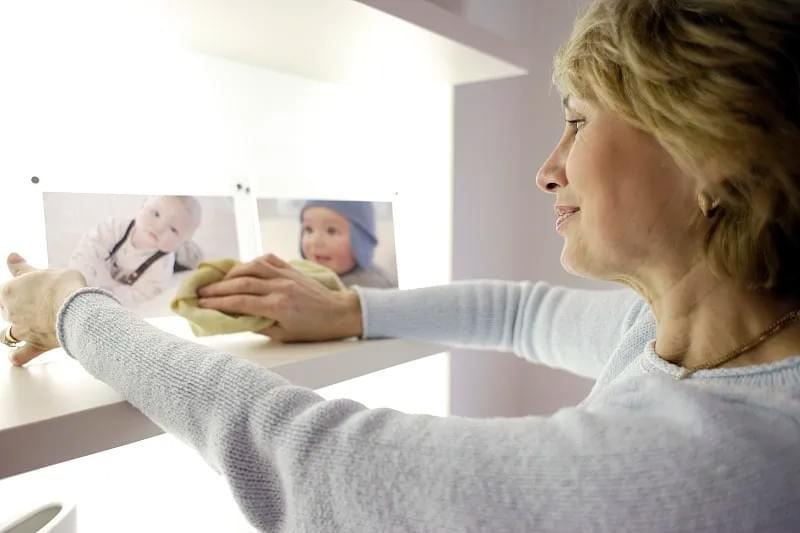Surrogacy is a profound act of generosity—a selfless journey where women carry hope, love, and dreams for intended parents who long to become families. While much attention is often placed on the medical and legal aspects of surrogacy, the emotional and psychological well-being of surrogate mothers remains a critical yet sometimes underexplored dimension. As global awareness of assisted reproductive technologies grows, so does the need to understand and support the mental health of the remarkable women who make surrogacy possible.
This article delves into the psychological adjustment of surrogate mothers throughout the surrogacy process—from initial decision-making and pregnancy to postpartum recovery and long-term emotional integration. Drawing on clinical research, expert insights, and firsthand narratives, we aim to provide a comprehensive, compassionate, and evidence-based exploration of how surrogate mothers navigate their emotional landscapes and what support systems contribute to positive mental health outcomes.
The Emotional Landscape of Becoming a Surrogate
The decision to become a surrogate is rarely impulsive. Most women enter surrogacy after careful reflection, often motivated by altruism, empathy, and a desire to help others experience the joy of parenthood. Many have previously given birth and report a strong sense of physical and emotional readiness to carry another pregnancy.
Psychologically, this phase is marked by empowerment and purpose. Studies published in Fertility and Sterility and Human Reproduction consistently show that surrogate mothers typically exhibit high levels of psychological resilience, emotional stability, and life satisfaction prior to and during pregnancy. These women often score above average on measures of self-esteem and altruism, indicating a strong internal motivation rooted in compassion rather than financial gain.
However, the emotional journey is complex. While the intention is noble, surrogates are not immune to stress, anxiety, or emotional ambivalence—especially as the pregnancy progresses and the reality of relinquishing the baby sets in.

Pregnancy: Emotional Support and Identity Shifts
During pregnancy, surrogate mothers experience the same hormonal fluctuations, physical changes, and emotional highs and lows as any expectant mother. Yet their experience is uniquely shaped by the knowledge that the child they are carrying is not genetically theirs and will be handed over after birth.
This duality can lead to a complex psychological state. On one hand, surrogates often report feeling deeply connected to the baby, celebrating milestones like first kicks and ultrasounds. On the other hand, they maintain a clear psychological boundary, reinforcing the identity of the child as belonging to the intended parents.
Research from the University of Cambridge’s Centre for Family Research indicates that surrogates who receive consistent emotional support—particularly from their partners, families, and the intended parents—report lower levels of anxiety and higher emotional well-being. Open communication, regular updates, and inclusive involvement in prenatal decisions (such as attending scans or naming discussions) help surrogates feel valued and respected.
Importantly, the relationship with the intended parents plays a crucial role. Positive, respectful, and transparent interactions reduce feelings of isolation and reinforce the surrogate’s sense of purpose. Conversely, poor communication or emotional distance can increase stress and complicate psychological adjustment.

The Postpartum Period: Grief, Relief, and Reintegration
The days and weeks following delivery are among the most emotionally significant in a surrogate’s journey. While the physical recovery is similar to any postpartum experience, the psychological transition is distinct. After giving birth, the surrogate must relinquish the baby to the intended parents—a moment that can evoke a mix of emotions: pride, joy, relief, and, for some, a sense of loss or sadness.
It is essential to recognize that grief does not imply regret. Many surrogates report experiencing a form of “ambiguous loss”—a feeling of emotional emptiness or nostalgia—despite knowing they made the right decision. This is a normal and healthy response to the end of a meaningful, intense experience.
A 2021 longitudinal study in Archives of Women's Mental Health found that while most surrogates report high levels of satisfaction with their experience, a subset may experience temporary mood disturbances, including symptoms of postpartum blues or mild depression. These typically resolve within a few weeks, especially with proper support.
Crucially, the presence of postpartum support systems—such as counseling, peer support groups, or follow-up visits from fertility clinics—can significantly ease this transition. Surrogates who feel celebrated and acknowledged for their contribution are more likely to integrate the experience positively into their personal narrative.

Long-Term Psychological Adjustment and Identity
Years after completing a surrogacy journey, most women report a strong sense of pride and fulfillment. Follow-up studies show high rates of psychological well-being, with many surrogates describing the experience as “life-changing” or “one of the best things I’ve ever done.”
However, long-term adjustment also involves identity integration. Some surrogates continue to think about the child and the family, especially on milestones like birthdays or holidays. In cases where ongoing contact is maintained (open or semi-open surrogacy), this can provide emotional closure and joy. In anonymous arrangements, surrogates may rely on internal narratives or support networks to process their feelings.
Interestingly, research suggests that surrogates who are able to talk openly about their experience—without fear of judgment—report higher levels of self-esteem and emotional resilience. Social stigma or lack of understanding from friends and community members can, however, lead to emotional suppression or isolation.
Therefore, public education and normalization of surrogacy are vital. When society recognizes surrogacy as a legitimate and noble form of family-building, surrogate mothers are more likely to feel validated and psychologically secure.

Supporting Surrogate Mental Health: Best Practices
To promote optimal psychological adjustment, several best practices are recommended:
- Pre-Screening and Counseling: All surrogates should undergo thorough psychological evaluation before acceptance into a program. This helps identify any underlying vulnerabilities and ensures emotional readiness.
- Ongoing Counseling Access: Mental health support should be available throughout the journey, including during pregnancy and the postpartum period.
- Peer Support Networks: Connecting with other surrogates allows for shared experiences, reducing feelings of isolation.
- Intended Parent Communication Training: Agencies and clinics should guide intended parents on how to maintain respectful, empathetic, and consistent communication.
- Post-Surrogacy Follow-Up: Regular check-ins at 1, 3, and 6 months postpartum can help identify and address any emerging emotional challenges.
Conclusion: Honoring the Emotional Journey
The psychological adjustment of surrogate mothers is a nuanced and deeply personal process. While the physical act of carrying a child is temporary, the emotional impact can be enduring. Most surrogates emerge from the experience with enhanced self-worth, deeper empathy, and a profound sense of purpose.
As society continues to embrace diverse paths to parenthood, it is essential to place equal emphasis on the mental health of those who enable these journeys. By providing compassionate care, fostering open dialogue, and recognizing the emotional labor involved, we honor not only the physical gift of life but the psychological strength of the women who give it.
For intended parents, agencies, and healthcare providers, supporting surrogate mothers’ psychological well-being isn’t just ethical—it’s fundamental to the integrity and sustainability of the surrogacy process itself.
